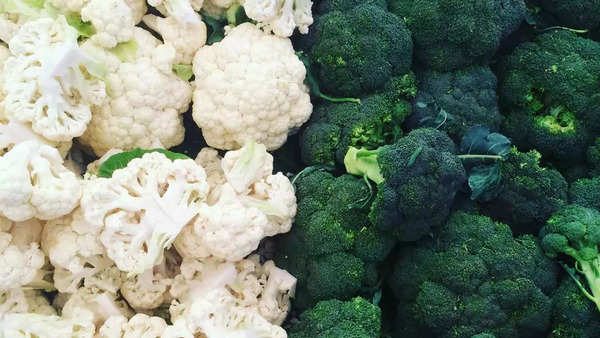Broccoli, known for its vibrant green florets, is a nutrient powerhouse, rich in vitamins C and K, fiber, and antioxidants.Its potential anti-cancer properties and support for heart health have elevated it to a superfood status. On the other hand, cauliflower, with its pale-hued curds, offers a distinct set of nutrients, including high levels of fiber, vitamins C and K, as well as unique compounds with anti-inflammatory and antioxidant properties.
Well, which of the two is healthier, let us find out.
Broccoli
Broccoli, a cruciferous vegetable with vibrant green florets and a hearty stalk, is celebrated for its exceptional nutritional profile and potential health benefits. Packed with essential vitamins and minerals, broccoli is a rich source of vitamin C, known for its immune-boosting properties, and vitamin K, crucial for bone health. Additionally, this cruciferous gem provides a notable amount of fiber, promoting digestive health.

Broccoli is also renowned for its potent antioxidants, such as sulforaphane, which may contribute to reducing inflammation and combating oxidative stress. Studies suggest that regular consumption of broccoli may offer protective effects against certain cancers, support heart health, and contribute to overall well-being. Embracing broccoli as a dietary staple can be a flavorful and nutritious choice for promoting a healthier lifestyle.
Cauliflower
Cauliflower boasts a pale-hued curd and is recognized for its nutritional richness and diverse culinary applications. Packed with essential vitamins and minerals, cauliflower is a good source of vitamin C, contributing to immune function, and vitamin K, essential for blood clotting and bone health. Its low-calorie content and high fiber make it a valuable addition to a balanced diet, promoting digestive health.
Beyond its nutritional content, cauliflower contains unique compounds, including glucosinolates, with potential anti-inflammatory and antioxidant properties. These compounds may offer health benefits, including supporting heart health and reducing the risk of certain cancers.
10 tips to improve your brain
Cauliflower’s neutral flavor and versatility make it a popular substitute for high-carb ingredients, such as rice or flour. Embracing cauliflower in various culinary creations provides not only a delightful taste but also a nutritious boost to overall well-being.
Which is healthier, Broccoli or Cauliflower?
Here’s what’s in 1 cup of raw broccoli:
Calories: 30
Protein: 2g
Fat: 0g
Carbohydrate: 6g
Sugars: 2g
Fiber: 2g
Sodium: 29mg
In one cup of Cauliflower
Calories: 27
Protein: 2g
Fat: 0g
Carbohydrate: 5g
Sugars: 2g
Fiber: 2g
Sodium: 32mg
Broccoli and cauliflower are both nutrient-rich vegetables with distinct flavors and textures, making them valuable additions to a healthy diet. Comparing their nutritional profiles, both offer unique health benefits.

Broccoli is renowned for its higher vitamin C content, which supports immune function, and is also a good source of vitamin K, fiber, and antioxidants. It contains sulforaphane, a compound associated with potential anti-cancer properties.
Cauliflower, while slightly lower in vitamin C, is rich in fiber, vitamin K, and choline, an essential nutrient for brain health. Cauliflower also contains antioxidants and anti-inflammatory compounds.

